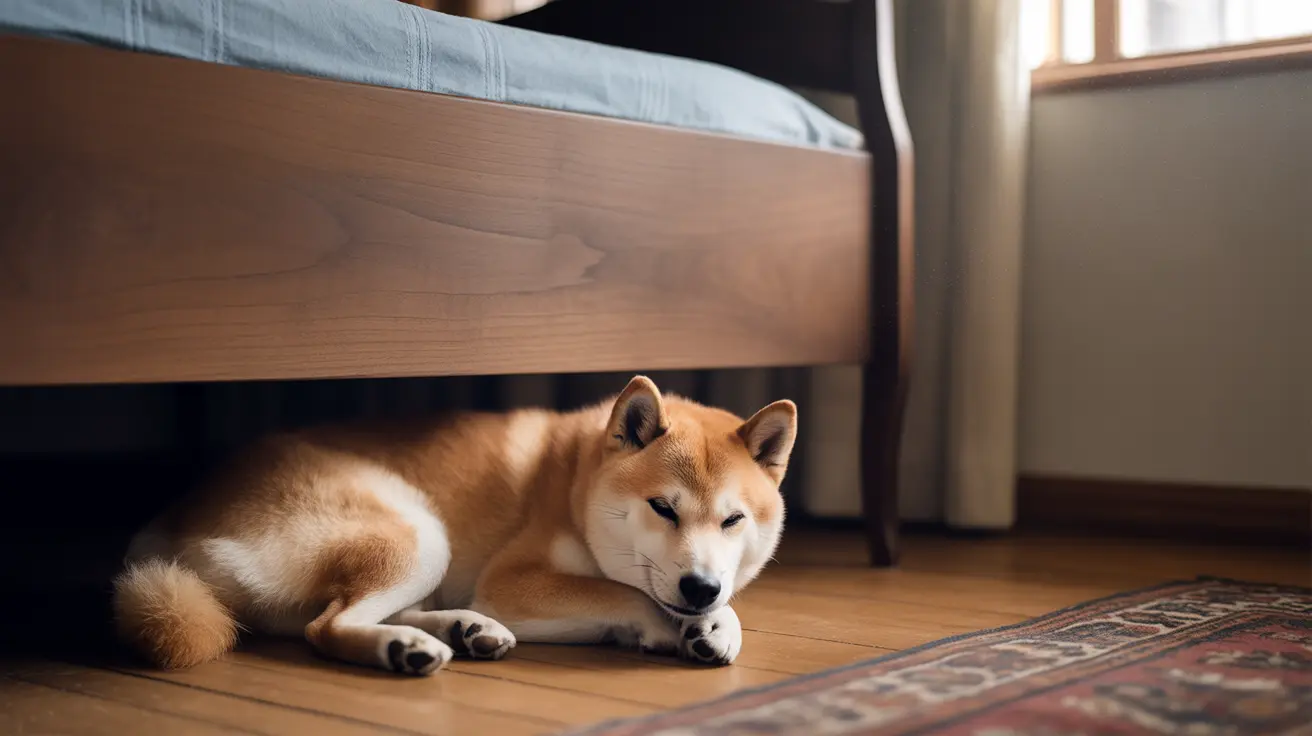Many dog owners are puzzled when their furry friends choose to sleep under the bed rather than in their cozy dog beds or alongside their humans. This behavior, while sometimes concerning to pet parents, often has deep-rooted explanations in canine psychology and natural instincts.
Understanding why dogs select this particular sleeping spot can help ease worries and ensure your pet's needs are being met properly. Let's explore the various reasons behind this common behavior and when it might signal something that needs attention.
The Natural Den Instinct
Dogs are natural den animals, inheriting behaviors from their wolf ancestors who sought out small, enclosed spaces for safety and comfort. Under-bed spaces perfectly mimic these natural dens, providing:
- A sense of security and protection
- Limited access points to monitor
- Darkness and quiet for peaceful rest
- Temperature regulation (usually cooler than open spaces)
This instinctual behavior is completely normal and often indicates your dog has found a spot where they feel safe and comfortable.
Why Is My Dog Going Under My Bed All of a Sudden?
When dogs suddenly start retreating under the bed, it often signals a response to environmental changes or new stressors. Common triggers include:
- Recent household changes (new pets, furniture, or people)
- Loud noises (thunderstorms, construction, or fireworks)
- Changes in routine or schedule
- Health issues or physical discomfort
If your dog's behavior has changed abruptly, it's important to observe any other behavioral changes that might indicate underlying issues.
Signs of Comfort vs. Signs of Distress
While sleeping under the bed is typically harmless, it's essential to distinguish between normal comfort-seeking behavior and potential signs of distress:
Normal Behavior Signs:
- Relaxed body language when entering/leaving the space
- Regular rotation between under-bed and other sleeping spots
- Willingness to come out for activities and interaction
Concerning Signs:
- Refusing to leave the space
- Showing signs of anxiety (panting, shaking, excessive drooling)
- Aggressive behavior when approached
- Loss of appetite or other behavioral changes
Creating Alternative Safe Spaces
If you'd prefer your dog not sleep under the bed, consider creating alternative den-like spaces:
- Set up covered crates with comfortable bedding
- Create quiet corners with cave-style beds
- Provide elevated spots with partial coverage
- Use furniture arrangements to create cozy nooks
Frequently Asked Questions
Why does my dog suddenly start sleeping under my bed all of a sudden?
Sudden changes in sleeping location often indicate a response to environmental stressors, such as loud noises, household changes, or anxiety. It could also be due to physical discomfort or illness requiring veterinary attention.
Is it normal for dogs to sleep under the bed, and what does it mean?
Yes, it's completely normal. Dogs naturally seek den-like spaces for security and comfort. This behavior typically indicates your dog has found a safe space where they feel protected and relaxed.
Could my dog sleeping under the bed be a sign of anxiety or stress?
While under-bed sleeping isn't automatically a sign of anxiety, excessive hiding or sudden changes in behavior might indicate stress. Look for other anxiety symptoms like panting, pacing, or changes in appetite.
How can I tell if my dog is hiding under the bed because of illness or pain?
Watch for additional symptoms like changes in appetite, lethargy, unusual vocalizations, or reluctance to move. If these signs appear alongside hiding behavior, consult your veterinarian.
What should I do if my dog frequently sleeps or hides under my bed?
If your dog seems comfortable and shows no signs of distress, this behavior is likely normal. However, provide alternative comfortable spaces and maintain regular veterinary check-ups to ensure optimal health.
Understanding your dog's behavior and respecting their need for a safe space is crucial for their well-being. While sleeping under the bed is typically normal, always monitor for sudden changes or concerning symptoms that might require professional attention.






